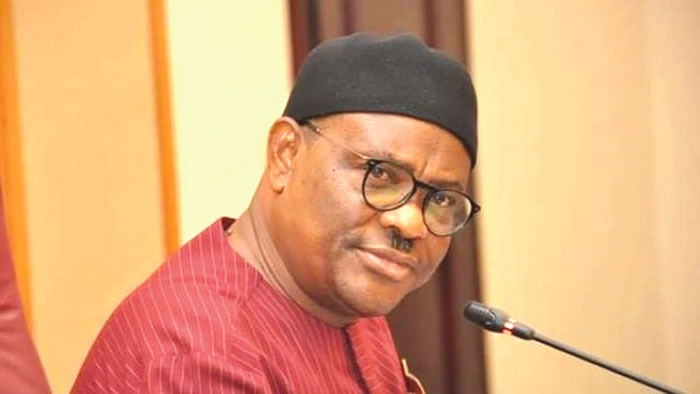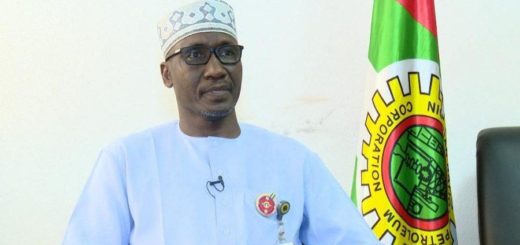Legal Issues As FCT Gets Civil Service Commission, Others

There have been some legal conundrums on the status of the Federal Capital Territory following some recent executive and judicial pronouncements relating to the FCT.
Natives of the FCT and observers have called for legislative action to recognise the territory as a state with equal governance organs – executive and legislature – following the latest pronouncements by the highest courts of the land and the moves to incorporate its civil service commission.
The Minister of the FCT, Nyesom Wike, on March 4, announced plans to appoint permanent secretaries in the ministries under the territory alongside the Civil Service Commission.
Wike, who stated this during a meeting with the directors of the Federal Capital Development Authority (FCDA) on Monday, said the commission would appoint nine permanent secretaries to oversee the secretariats.
The secretariats are Agriculture and Rural Development, Transport and Economic Planning, Revenue Generation and Public Private Partnerships.
The others are Education, Social Development, Legal Services, Area Council, Health and Environment and Women Affairs.
The reforms are part of the Federal Capital Territory Service Commission (Establishment) Act, 2018 which provides that the commission would be established and charged with the responsibility for the appointment, discipline and transfer of the civil service of the Federal Capital Territory, Abuja.
Although the constitution provides that the FCT would be administered directly under the federal government and its other arms of government, the commission’s Act regulates the overall administration of the territory’s civil service.
The Constitution of the Federal Republic of Nigeria, 1999, from Section 297 provides thus: “There shall be a Federal Capital Territory, Abuja the boundaries of which are as defined in Part II of the First Schedule to this Constitution.
2) The ownership of all lands comprised in the Federal Capital Territory; Abuja shall vest in the Government of the Federal Republic of Nigeria;
“298. The Federal Capital Territory, Abuja shall be the Capital of the Federation and seat of the Government of the Federation;
“299. The provisions of this Constitution shall apply to the Federal Capital Territory, Abuja as if it were one of the States of the Federation; and accordingly – (a) all the legislative powers, the executive powers and the judicial powers vested in the House of Assembly, the Governor of a State and in the courts of a State shall, respectively, vest in the National Assembly, the President of the Federation and in the courts which by virtue of the foregoing provisions are courts established for the Federal Capital Territory, Abuja; (b) all the powers referred to in paragraph (a) of this section shall be exercised in accordance with the provisions of this Constitution; and (c) the provisions of this Constitution pertaining to the matters aforesaid shall be read with such modifications and adaptations as may be reasonably necessary to bring them into conformity with the provisions of this section.”
In its judgement on the presidential election petitions of the 2023 election on September 6, 2023, the Presidential Election Petitions Court presided by Justice Haruna Tsammani held that the contention by both the Peoples Democratic Party (PDP) and the Labour Party (LP) that the presidential candidate of the All Progressives Congress (APC) did not score two-third votes in 24 states of the federation and the FCT as provided in Section 134(2)(b) of the Nigerian Constitution was “fallacious”.
The panel said the provision of Section 134(2)(b) and Section 299 of the Nigerian Constitution intends that in calculating the two-thirds of the states of the federation, the FCT would be treated as though it were one of the states.
“If the candidate scores 25 per cent or a quarter of the votes of the 37 states of the federation, FCT inclusive, the presidential candidate shall be deemed to have been duly elected even if he fails to score 25 per cent of the votes in the FCT as the votes of the second respondent (Tinubu),” he said.
The verdict was affirmed by a seven-member panel of justices of the Supreme Court on October 26, 2023.
An Abuja-based human rights lawyer, Hameed Ajibola Jimoh Esq., said the FCT is constitutionally entitled to have its civil service administration and or commission which is an administrative structures of the FCT and such operation of the administrative structures are belated.
He referred to sections 197; 198; 199; 200; 201; 202; 203; 204; 205; 206; 207 of the Constitution; and Part II (A) of the Third Schedule to the Nigerian Constitution of 1999.
“To that extent, FCT being declared to be a state by the constitution in sections 299 and 301, shall have such civil service and its commission and other state’s structures and institutions as may have been created for a state of the federation by the constitution.
“However, subject to such limitations made by the constitution, especially in sections 300 and 301 of the constitution, respectively and jointly in interpretation (as all States of the Federation are equal before the constitution in rights and entitlements).
“Furthermore, I wish to observe with due respect that the status of the FCT ‘as a State’ of the Federation is not ‘new’ by combined reason of sections: 298, 299, 300, 301, 302, 303 and 304 of the constitution. So, with due respect, it is wrong and misconceived to say that the FCT got a new status as a State of the Federation having regard to the verdict by the election tribunal,” he said.
E.M.D. Umukoro Esq said the law intends that although the FCT may be treated as though it were any other state, it is quite different because it has a special status.
“The civil service commission for the FCT should be shelved because there are more pressing issues in the country; it is like saying because FCT is like every other state, then it should have a state house of assembly, an election where a governor and deputy are elected, but we know that is not the situation,” he said.
He suggested that the new commission may create an additional burden of funding by bloating and duplication of the civil service, which has been functioning well without the commission.
The executive director of the Citizens United for the Rehabilitation of Errants (CURE), Sylvester Uhaa, said the latest agitation was a direct outcome of the post-election interpretation of Section 134 of the Nigerian Constitution by the courts.
“So, based on that judgement, which as you know, has become a case law, the FCT is taking full advantage of it to establish a civil service commission like other states of the Federation. We hope that the indigenous people in the FCT and residents will enjoy more institutional establishments, similar to the ones in all states, leading to more socio-economic and political developments. We will continue to watch how this will unfold in the future,” he said.













